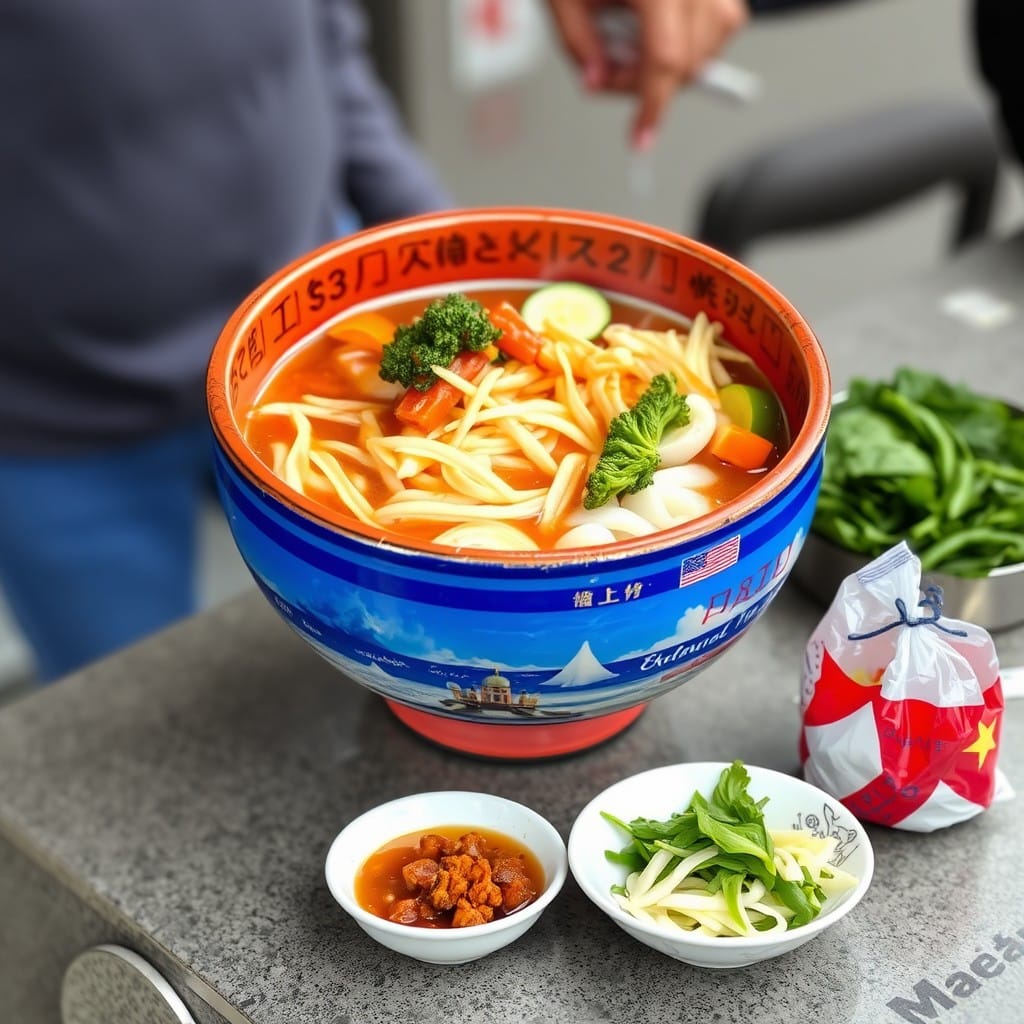China’s food culture is rich and diverse. its known worldwide for dishes like dim sum, hot pot, and fragrant teas. But a common question people ask is: Do they eat 3 meals a day in China? The answer is not so simple. While many people in China eat three meals a day, the way meals are structured and when they are eaten can vary. In this article, we’ll dive into Chinese eating habits, explore meal timing, and uncover what’s on the menu in different regions.
Traditional Meal Structure in China
In traditional Chinese culture, people didn’t always divide they’re meals into three set times. They ate smaller meals throughout the day, focusing on balance and variety. The timing of meals was flexible, depending on one’s schedule. IN rural areas, this meant eating at different times based on the workday. In cities, however, the three-meal pattern has become more common in modern times.
Sharing meals plays a central role in Chinese culture. Traditionally, people served food family-style, with dishes placed in the center. EVeryone helped themselves, making meals a social event.
Breakfast Habits in China: The First Meal of the Day
Breakfast is a pivotal meal in China, offering hearty options like congee, steamed buns (baozi), and savory pancakes (jianbing). In urban areas, people often grab a quick breakfast from street vendors, while in rural regions, breakfast remains a nourishing start to the day.
Learn more about the rich diversity of Chinese breakfast options in this Chinese breakfast guide.
Is Lunch the Main Meal? Do People Eat 3 Meals a Day in China?
For many, lunch is the most substantial meal. It typically includes rice, noodles, meat, tofu, and vegetables. In urban areas, quick lunches from food stalls or restaurants are common, while traditional settings emphasize communal dining and shared dishes.
Curious about how traditional Chinese breakfasts and lunches vary? Check out this guide to typical breakfast in China.
Dinner in Chinese Culture: What to Expect from the Final Meal
Dinner in China is typically enjoyed later in the evening, usually between 7 pm and 8 pm. Like lunch, dinner features a wide variety of dishes. These can include rice, meat, fish, vegetables, and soup. In rural areas, dinner is sometimes the largest meal of the day, especially after a long workday. its a time for families to gather, share food, and relax.
So, do they eat 3 meals a day in China? Yes, but dinner is often more relaxed. People enjoy meals at their own pace, lingering over food and conversation.
Snack Culture in China: Do Snacks Fit Into the 3 Meals a Day Routine?
In addition to main meals, snacks are an essential part of the Chinese diet. Do they eat 3 meals a day day in China? Yes, but snacks are also common. form dumplings and spring rolls to rice cakes and fried foods, snacks can be found at street stalls or markets. Tea eggs, fruit, and fried dough sticks are popular choices.
People enjoy snacks throughout the day, especially between meals. theyre not just about satisfying hunger—they provide an opportunity to try new flavors and socialize with others.
Urban vs. Rural Eating Patterns: How Does Meal Timing Change Across China?
In urban areas, people tend to eat three structured meals a day. Do they eat 3 meals a day in China? Yes, in most cities. People follow a set schedule with breakfast, lunch, and dinner. However, in rural China, meal times can be more flexible. Farmers and laborers may eat smaller meals throughout the day, depending on their work schedules.
While meal patterns have become more consistent in cities, rural communities still show more variation in eating habits.
Globalization and Meal Habits: Do They Still Eat 3 Meals a Day in China?
Globalization has influenced meal patterns in China. Do they eat 3 meals a day in China? Yes, in many places, especially in large cities. Western food chains, fast food, and online delivery services have made it easier for people to adopt a more structured meal pattern. Meals have become quicker, and eating out has become more common.
Yet, traditional Chinese meals, such as rice dishes and shared family meals, remain central to life. Globalization has introduced new foods, but Chinese food culture stays rooted in its traditions.
Special Occasions and Meals: The Role of Celebrations in Chinese Dining
In China, meals are often about more than just eating—they’re about family and celebration. During special occasions like Chinese New Year, meals become grand events. People enjoy multiple courses, with each dish symbolizing good fortune, health, or prosperity. During these times, do they eat 3 meals a day in China? The answer might be yes, but there’s no limit to how many meals or snacks people might enjoy.
These meals provide a time for family to come together. They feature traditional dishes that carry cultural significance, reflecting the importance of food in Chinese life.
Do They Eat 3 Meals a Day in China? Timing and Meal Schedules
Do they eat 3 meals a day in China? In most urban areas, yes. Breakfast typically happens between 6 am and 8 am. Lunch is from noon to 1 pm, and dinner usually occurs around 7 pm or 8 pm. However, meal times can vary based on region and lifestyle. In rural areas, people might have irregular meal times depending on their daily routines.
Meal timing remains flexible, but breakfast, lunch, and dinner are the most common routine in cities. The Culture Trip: Chinese Eating Habits and Meal Patterns
Nutritional Aspects of 3 Meals a Day: A Balanced Approach to Eating in China
Chinese meals typically feature a balanced mix of proteins, vegetables, and carbohydrates. Do they eat 3 meals a day in China? Yes, and Chinese meals often include a variety of foods to provide essential nutrients. Rice and noodles are staples, while vegetables, tofu, and meats add nutritional value. Soups are also common, contributing to hydration and digestion.
Recently, many people in China are focusing on healthier eating habits. They aim to reduce sugar and oil, opting for lighter, more nutritious meals.
The Role of Tea in Chinese Meals: Is Tea Served at Every Meal?
Tea is an essential part of Chinese dining. Do they eat 3 meals a day in China? Yes, and tea is usually served with every meal. Tea isn’t just a drink—it enhances the dining experience. It cleanses the palate, aids digestion, and enhances teh flavors of food. Whether served in formal tea ceremonies or casually during meals, tea holds deep cultural significance.
The tradition of drinking tea remains integral to Chinese food culture, symbolizing hospitality and respect.
Do All Chinese People Eat 3 Meals a Day? Regional and Lifestyle Differences
In general, do they eat 3 meals a day in China? Yes, especially in urban areas. However, this isn’t universal across the country. People in rural areas may eat fewer or more irregular meals depending on their daily routines. Some people may have larger meals at specific times, while others might snack throughout the day.
Meal patterns can differ based on lifestyle and location, but the concept of three meals a day is widely followed in cities.
Regional Differences: How Meal Structures Vary Across China
Meal patterns in China vary by region. Do they eat 3 meals a day in China? The answer depends on where yuo are. In northern China, people often eat wheat-based dishes like noodles and dumplings. In the south, rice dishes dominate. Meal timing and structure also vary. In coastal regions, seafood is a major part of meals, while in inland areas, meat and vegetables are more common.
Each region has its unique food culture, and the timing and structure of meals can reflect local customs and preferences.
Social and Family Dynamics: Why Eating Together Is So Important in China
In China, meals are not just about food—they’re about bonding. Do they eat 3 meals a day in China? Yes, but the social aspect is equally important. Meals provide a time for families to gather, share stories, and enjoy food together. Whether its a weekday dinner or a festive celebration, food brings people closer.
In many ways, meal times reflect the values of family and community. Eating together remains central to Chinese culture.
FAQs
Why is dinner considered the most important meal?
Dinner holds special significance in Chinese culture because it is often the only meal where families can gather together, especially in today’s busy world. Traditionally, dinner serves as a time for bonding, sharing the day’s experiences, and enjoying a variety of dishes that reflect the family’s culinary preferences. It is also the meal with the most elaborate preparation, featuring several dishes that cater too the tastes of everyone at the table. During weekends and special occasions, dinner becomes even more important, often resembling a mini-feast with extended family members and friends.
Do people in China skip breakfast?
While breakfast is widely considered an important meal, skipping it is not uncommon in urban areas, especially among younger generations and busy professionals. Factors like hectic morning routines and long commutes contribute to this trend. However, breakfast remains a cherished part of daily life in many regions, with a wide array of options such as steamed buns (baozi), congee, and fried dough sticks (youtiao). In rural areas, breakfast is typically a wholesome meal, as families prioritize starting the day with nourishment.
Are snacks replacing meals in China?
In urban areas, snacks are increasingly replacing traditional meals, particularly lunch, due to the rise of convenience-driven lifestyles. Busy work schedules and the availability of affordable, quick snacks like dumplings, rice balls, and packaged foods have contributed to this shift. However, snacks are more of a supplement rather then a complete replacement for meals in most cases. Traditional meal practices still hold strong, especially in family settings and rural areas where eating three structured meals is the norm.
What are common beverages consumed with meals?
Tea is the most iconic beverage paired with meals in China. Different types of tea, such as green tea, jasmine tea, and oolong tea, complement the flavors of various dishes and aid digestion. Soups are also frequently served with meals, acting as both a dish and a drink. For special occasions, alcoholic beverages like baijiu (a traditional distilled liquor) and beer are popular. IN modern urban settings, juices and soft drinks have also become more common, especially among younger generations.
How has technology influenced meal habits in China?
Technology has dramatically transformed eating habits in China. The rise of food delivery apps like Meituan and Ele.me has made it easier for people to order meals, leading to a decline in home-cooked meals in some urban households. Social media platforms like Douyin (TikTok) and Xiaohongshu have also influenced food trends, with users sharing recipes, reviews, and dining experiences. Moreover, smart kitchen appliances and online grocery shopping have streamlined meal preparation, making traditional cooking more accessible for busy individuals.
Do students and workers follow the 3-meal routine?
Students and workers generally adhere to the three-meal routine, but this can vary depending on their schedules and workload. Schoolchildren are typically provided with lunch at school, ensuring they maintain a structured meal plan. University students and young professionals, however, might skip breakfast or replace lunch with snacks due to time constraints. Despite this, dinner remains a priority for most, as it is viewed as an opportunity to unwind and enjoy a hearty meal after a long day.
Conclusion
So, do they eat 3 meals a day in China? The answer is generally yes, especially in urban areas. But the way meals are enjoyed, the foods served, and the timing can vary greatly. Meals in China are about much more than just eating—they’re about about connection, tradition, and culture. Whether it’s a shared dinner with family or a quick snack on the street, food in China is an experience. And no matter how meals are structured, food remains a central part of daily life.

